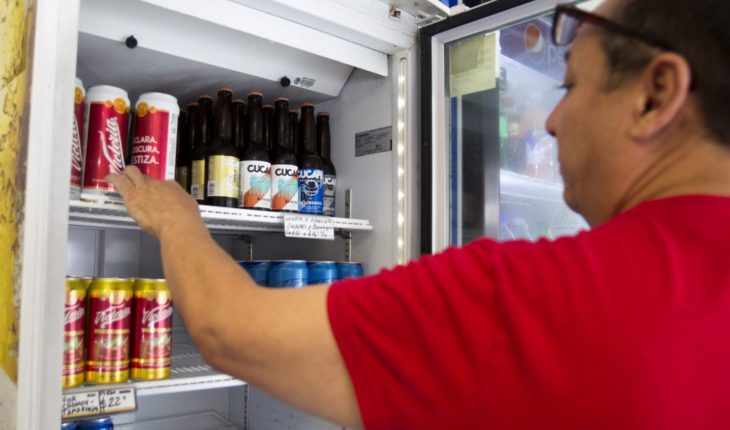In less than a month, supermarket refrigerators and shops were virtually empty of beer. Between the suspension of production by the COVID-19 health crisis and panic purchases both for this measure, and by the dry law decreed in various municipalities and mayors of the country, the reality is that this product is increasingly difficult to find.
On April 5, operations were recorded at the country’s major beer-producing companies because they did not enter the federal government’s list of essential activities.
And although on April 10 there was a confusion between authorities that seemed to open the door to the possibility that beer production could be re-launched, undersecretary for Health Prevention and Promotion Hugo López Gatell reiterated that these companies could not operate.
“There is a health provision that suspends work activities except essential ones and does not include brewing (…). The brewing industry is not authorized to restore operations,” the official said at his evening press conference on April 10.
Since then, the existence of beer in supermarkets, convenience stores and local shops began to run out, with no possibility of being replenished.
Within a few days, voices emerged that asked to allow the industry to operate due to its importance in the market.
For example, on April 14, the National Small Trade Alliance (Anpec) called on federal authorities to resume the operation because of the importance of this product to small businesses.
“If their supply is not guaranteed, in addition to not meeting demand, sales of thousands of businesses would drop dramatically, driving them at the close and causing the loss of thousands of self-employment, leaving many households living off this unsurpprofeed; in times as adverse as today would amount to raining on wet,” the body considered in a statement in which he added that this product could even make the lockdown more bearable.
THE IMPORTANCE OF INDUSTRY
In April 2018, the then federal government, through the Federal Consumer Attorney’s Office, released the document Beer: Beyond fermentation in which it is stated that brewing is one of the most relevant activities in the country, as it occupies site 14 between 291. To reach this conclusion, it was taken as a database of the National Institute of Statistics and Geography (Inegi).
The study details that in six years beer production increased by 32%, from 8 billion to 10 billion liters. With this Mexico became the fourth largest manufacturer of beer behind China, the United States and Brazil.
And while the document explains that most of Mexico’s brew production goes to export, the local market is also relevant. Annual intake confirms this: the intake per person is 62 litres per year, while in countries such as the Czech Republic it is 143; In Germany, 110, and Austria, 108.
In addition, in 2014, the Inegi’s economic censuses estimated that 11,834 people worked in beer-producing companies.
To this fact, it should be added that, according to Anpec, 40% of local stores depend on the sale of beer, so the scarcity generates a collapse in their income.
REACTIONS
As refrigerators and shelves of shops and supermarkets empty, people express on social media their discontent, concern and jokes about it.
The shortage has been reported by consumers through the hashtags #SeAcabóLaChela showing empty refrigerators, but also memes that reflect this situation.
Here are some examples:
forgive us #SeAcabóLaChela pic.twitter.com/hJ8f27weTO
— ??? (@aamexv) April 29, 2020
ONE MORE TEST THAT THE END OF THE WORLD IS ABOUT… #SeAcabóLaChela pic.twitter.com/nhVgRnXzZX
— The Good Fer (@Buen_Fer) April 29, 2020
What we do in Animal Político requires professional journalists, teamwork, dialogue with readers and something very important: independence. You can help us keep going. Be part of the team.
Subscribe to Animal Político, receive benefits and support free journalism #YoSoyAnimal.





